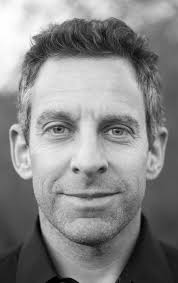Worried that religious terrorism may do us all in? Never fear. A young man named Sam Harris has written a book that argues that all we have to do to survive is to terrorize all true believers.
“Some propositions are so dangerous that it may even be ethical to kill people for believing them.” – Harris
In The End of Faith (W. W. Norton, 2004), Harris argues that “Some propositions are so dangerous that it may even be ethical to kill people for believing them.” His prescription for faith-based atrocities stands the Golden Rule on its head, calling us to do others in before they succeed in doing us in.
 The book is a sophomoric bit of literary flotsam that’s not worth publicizing except to warn that such nonsense is actually afoot. By parading as serious writing, it plays into the hands of those who believe that self-preservation is not only worth giving up all freedoms but making pre-emptive strikes a way of life in the guise of just wars.
The book is a sophomoric bit of literary flotsam that’s not worth publicizing except to warn that such nonsense is actually afoot. By parading as serious writing, it plays into the hands of those who believe that self-preservation is not only worth giving up all freedoms but making pre-emptive strikes a way of life in the guise of just wars.
The author’s premise is that behind every action is a belief; so to eliminate irrational acts such as Muslim terrorism (and Christian crusades), the survival of the species requires eliminating all forms of belief.
It’s not just radical fundamentalists who are to blame here. Liberals and moderates of every faith are also at fault for protecting religious freedom, thus creating a haven for irrational notions such as jihad.
One thoughtless error in the book is its assumption that belief always results in action. Any overweight person who has ever believed he should lose weight then failed to do so, knows how silly that is. “Silly,” however, becomes “dangerous” when the idea is advanced that to control destructive forms of belief calls for the prohibition by violence, if necessary, of belief itself.
Oh wait! The author’s own belief system is of course excluded
He and other true believers who trust in salvation by reason alone get to decide which beliefs are so dangerous that disciples can be eliminated. His view even entitles him to make fun of Jews whose faith survived Auschwitz.
This bit of anti-religious doggerel assumes a false definition of “faith.” In Harris’ view, faith is the irrational assumption that God will always protect you, weaving a cocoon of safety about you so you are always comfortable, and always win.
As Jews and Christians know, that’s almost the opposite of true faith, which can say that “Though he slays me, yet will I trust in him” (Job 13:15).
Blind faith
That “blind faith” is actually what ticks Harris off. Yet he knows that a majority of earth’s populace have the disease, so he admits that it might take, oh, at least a generation to breed it out.
Meanwhile, we can hope that Harris will realize his odd inconsistencies. On the one hand, he’s a zealot, a preacher for atheism who wants believers to convert. On the other, he’s a fatalist who thinks that genetics makes us unable to change. Also, while holding to the “ethics” of killing people who have dangerous beliefs, he wishes we would treat chimpanzees more, well, humanely.
If we work at it, we can credit the author for being bold enough to defy political correctness and point out that most religions do have inhumane elements. He shows just how scandalous are the wars and terrorist acts perpetrated in the name of various religions.
Unfortunately, Harris’ “final solution” for the problems raised by blind faith can only make believers defensive. He would do better to challenge us to be self-critical, to emphasize elements in our faith that call for respect for those with whom we differ, and to figure out how to be both faithful and humane






